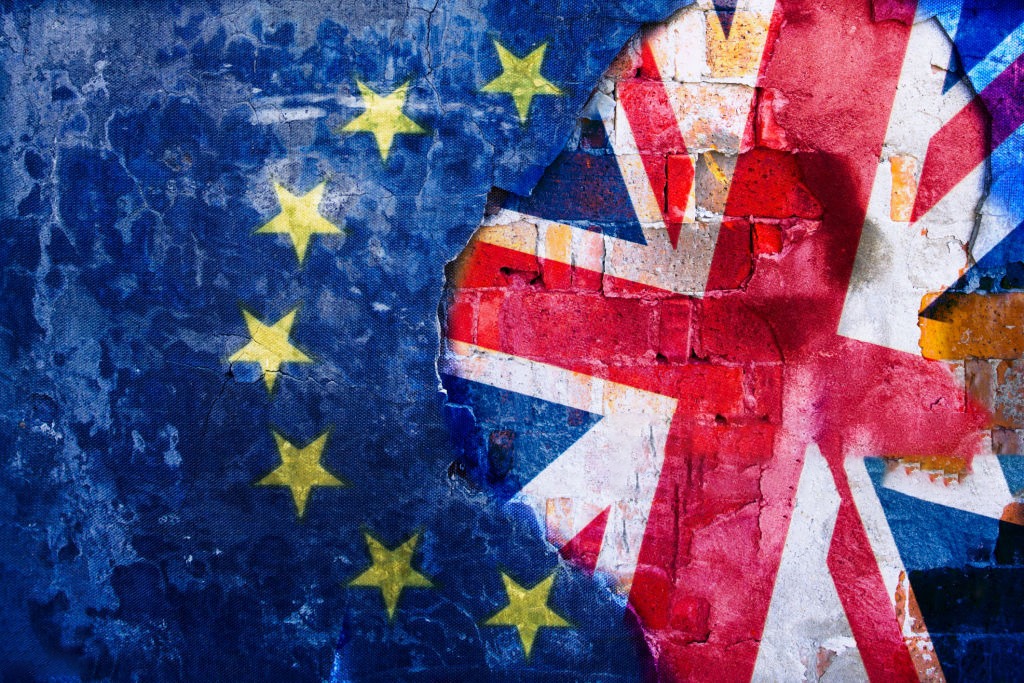EU-UK Rivalry Escalated After Brexit
Boris Johnson sought to put an end to the Brexit issue once and for all after his country left the EU, and to pursue EU-UK relations in the form of strategic relations and economic partnership. After the initial talks of partnership and very close relations, now the UK prime minister seems to prefer the conflict and confrontation with Europe that brought him to power, to partnership with the union. The UK and the EU also vowed that their relations would remain friendly and that they would not falter after UK’s withdrawal. But only four months later, there are strong, compelling reasons to imagine a permanent rivalry. Sometimes, bitterness grows between the UK and the EU and it is not clear what the outcome will be.
Boris Johnson is Looking for a Rival
The UK government is taking every opportunity to celebrate Brexit as a great success and is gaining points by imposing restrictions on the European club. The restrictions went so far that Johnson’s Conservative government refused to grant the EU ambassador full diplomatic status. The EU says its representatives in other countries have full diplomatic status under the Vienna Convention and that the UK is aware of this, but it refuses to grant full diplomatic status to the EU ambassador and prefers to create tension in friendly diplomatic relations.
Covid Creates More Gaps!
Hit by the pandemic, the EU has decided to be tough in its disputes with the UK. In the meantime, an atmosphere of mistrust and mutual blame persists between the two sides. About seven days before UK’s exit from the EU and its customs union, negotiators reached a trade agreement last Christmas Eve which was formally called the Trade and Cooperation Agreement. This agreement, if implemented properly, could have avoided much of the chaos, but relations between the two sides have been strained since the start of UK’s exit from the EU, making them distrustful of each other.
EU-UK Economic Relations Deteriorating Every Day
The resumption of economic relations between the two sides in early January was like taking a cold shower for many businessmen. Customs forms, controls, food import conditions, and licenses and sales taxes created a series of cumbersome regulations that many traders were unprepared for. Johnson claimed on Christmas Eve that the deal would remove any trade barriers. But UK goods exports to the EU fell by 40.7% in January, according to the Office for National Statistics (ONS), while imports tumbled by 28.8%.
The figures were shocking , as trade had previously been carried out freely with EU countries, without any disappointing rules and regulations. But a sharp drop in the volume of trade and a lack of supplies has been experienced in recent months. Alternatives to compensate for the economic loss on the UK side have angered many, and many industries and businesses are on the verge of collapse and bankruptcy.
Vaccination is the First Differential !
Johnson immediately started the coronavirus vaccination programme after the process of withdrawal from the EU was completed and he was ahead of the EU in doing so. Although the number of Covid deaths in the UK is still very high according to officials, the vaccination process in this country is being followed on schedule and more than 32 million people in the UK have received at least one dose of the coronavirus vaccine. The EU celebrated the start of co-vaccination on December 27, but weeks of controversy ensued, with criticism of low delivery of vaccines, slow vaccination and unfair vaccine distribution.
The UK has imported 21 million Covid-19 vaccine doses filled and finished in the EU, as per data provided to EU leaders by the European Commission. An EU official has confirmed that this included over one million AstraZeneca shots, while almost no vaccines have been imported into Europe from that country. In late March, the head of the European Commission cited this fact as a reason to plan to tighten import controls. Of course, the UK and the EU are currently negotiating closer co-operation on the vaccine, but the outcome remains unclear as the two sides do not trust each other and tension between them is escalating.
After decades of joint cooperation and very close economic, political and cultural ties, conditions between the UK and the EU deteriorated within weeks following Brexit to such an extent that they accused each other of violating their agreement as nationalism and hostilities set in. The trade agreement with the UK has not yet been ratified by the EU, and given the resurgence of disputes over the Irish border and disputes over the Covid vaccine, the European Parliament has made its ratification conditional on the resolution of these disputes. In a unilateral decision, London also extended the deadline for controlling food imports into Northern Ireland until the end of September 2021, which also angered EU officials.
UK’s blunt withdrawal from the EU and its failure to meet its obligations under the agreement have led to hostility and mistrust between the two sides. Boris Johnson is the main culprit of the situation who, with ill-considered decisions, has brought the country to the verge of a crisis and pushed many British industries to the brink of bankruptcy. This has increased tensions within the UK, with many opposition parties, as well as the people, calling for the removal of Boris Johnson as prime minister.

